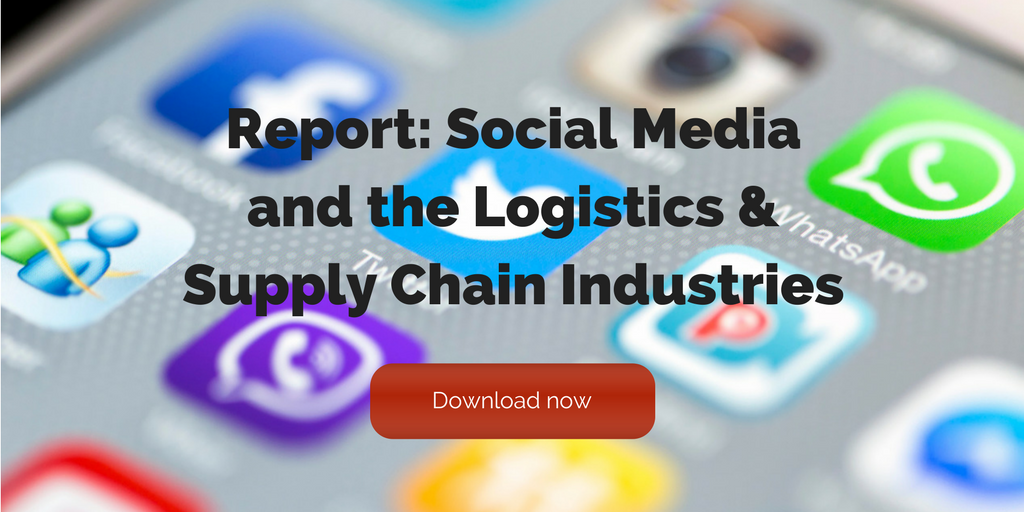Our most-viewed leadership posts from this year cover positive and negative leadership characteristics and provide examples of exceptional industry leaders.
One of my favorite experiences from 2017 was interviewing Ellen Voie, the CEO of Women In Trucking. A true inspiration, Voie exhibits tangible passion for promoting more gender diversity into the transportation space, but her practical, strategic approach is the hallmark of her success. She is an exceptional leader, and I feel privileged to have gotten this opportunity.
Our top leadership posts from 2017 examine what makes a good leader, as well as what makes a bad leader. They also look at some executive thought leadership about industry trends, and talk about graduate programs from which future leadership may be matriculating.
Top 10 leadership posts
1) 80% of Executives Say Procurement Isn’t Strategic Enough
Tis guest post from Argentus Supply Chain Recruiting looks at insights from the Procurement 2020 Survey. The survey of 200 C-Suite executives from a variety of industries and functions presents a rather dispiriting picture of the Procurement function today — or at least how it’s perceived. The majority of executives don’t think procurement is crucial to business leadership, and that it isn’t a key input when making high-level strategic decisions. Read full post
2) Women In Trucking’s Ellen Voie Paves the Way for Women Drivers & Managers
Ellen Voie is successfully breaking down barriers and changing the perception of the trucking industry. As founder and president of Women In Trucking (WIT), Voie and her team work to promote the organization’s mission “to encourage the employment of women in the trucking industry, promote their accomplishments, and minimize obstacles faced by women working in the industry.” I spoke with Voie about her experiences in the transportation industry, as well as her hopes for WIT and the future of women truckers. Read full post
3) Top Supply Chain Management MBA Programs 2018
We write frequently about the importance of recruiting and strengthening the relationship between academia and the supply chain industry as means to solve the growing supply chain talent gap. If your company is looking to hire, consider strengthening your rapport with schools that offer supply chain programs or specialties. The U.S. News & World Report annual rankings give companies in the supply chain and logistics industries an idea of where some of the brightest graduates, who will be seeking employment in the upcoming months, will be coming from. Read full post
4) 5 Ways to Push Employees to Be Their Best without Stressing Them Out
Management works to create a balance between pushing employees and pushing them past their limits. Leaders should create a safe and supportive environment where employees feel respected and, in turn, cooperative and productive. With this is mind, it’s important to incorporate tangible ways of reducing stress for your employees. This post offers some ideas. Read full post
5) How to Be a Bad Leader: 6 Common Characteristics of Poor Leadership
What’s the number one reason talented employees quit? Gallop polls show that 50% of employees cite their managers as the reason for leaving. A bad leader can cost your company. And poor leadership at the highest levels of a company can be detrimental to a business. This post outlines 6 common characteristics of poor leadership that should be red flags to all companies. Read full post
6) Should You Get an MBA in Supply Chain or a Designation?
Again, our friends at Argentus Supply Cain Recruiting ask an important question: What value do you see in getting a Master’s Degree in Business/Supply Chain vs. some of the designations out there? The recruiting experts speak to what companies are looking for in hiring, and how graduating from these programs builds your personal brand. Read full post
7) Should You Freeze Hiring During Uncertain Economic Times?
Despite an 8-year bull market, many businesses are still licking the wounds caused by the 2007 financial crisis. Add a volatile political climate and predictions of impending economic turbulence, and you can’t blame those growing wary of rapid growth or expansion opportunities. But, as the supply chain is already suffering from a talent gap, can companies afford to slow or freeze hiring — or, even, to downsize? Research suggests that organizations that balance caution with a forward-looking talent-acquisition strategy may fair best through difficult economic times. Read full post
8) Why Supply Chain and Logistics Executives Should Be Active on Social Media (as Themselves)
With their relative celebrity, supply chain and logistics executives are uniquely positioned to attract a following of customers, prospects, potential talent, industry peers, and admirers. They can use social media to connect with these people, share their ideas and industry news, and become the human face of their brands. It amplifies the company’s social media efforts in a way brands can’t do themselves. Read full post
9) Women Leaders Who Make the Supply Chain Flow
We have had the opportunity to interview 6 supply chain leaders about their professional experiences, as well as their thoughts on gender diversity in the industry and beyond. Interviewees include: Kendrea Durr-Smith, Director of Global Trade Compliance, Arrow Electronics; Barbara Jorgensen, Co-Founder and Managing Editor, Electronics Purchasing Strategies; Hailey McKeefrey, Editor-in-Chief, EBN; Cathy Morris, Senior Vice President and Chief Strategy Officer, Arrow Electronics; Mickey North Rizza, VP of Strategic Services, BravoSolution; and Kelli Saunders, President, Morai Logistics. Read full post
10) There Are Lessons in Success, Not Just Failure
Companies have a responsibility to ask the tough questions when things go awry. We have all been in these meetings: we diagnose failures, and we dissect the process, tools and staff involved to get to the root of the problem. Unfortunately, most companies only step back and really dive into what happened when something bad happens. But what if companies took the same approach when something went right? Read full post
Related posts:
- Great Leaders Need to Be Adept at Delegating
- Investing in Your Employees Can Increase Productivity: Wages, Time and Energy
- 6 Key Attributes Google Instills in Its New Managers


